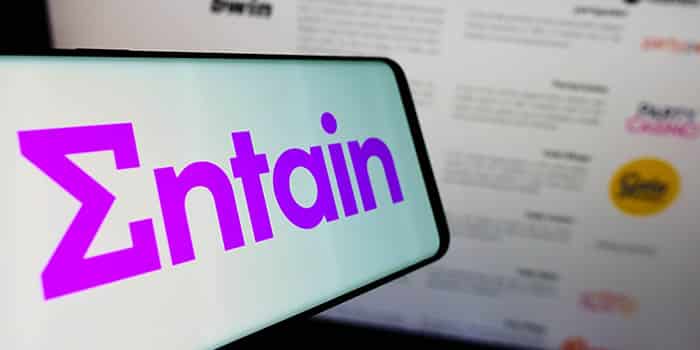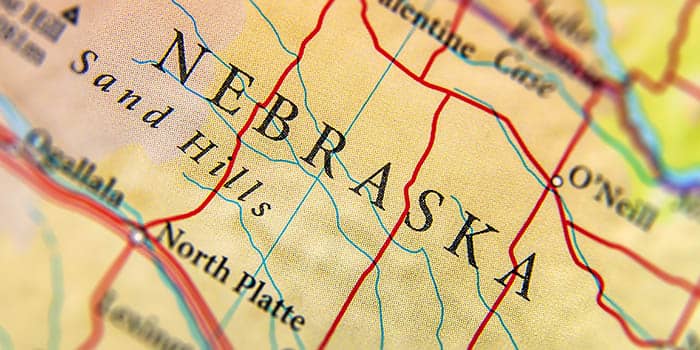- Casino
- By State
- Alabama
- Alaska
- Arizona
- Arkansas
- California
- Colorado
- Connecticut
- Delaware
- Georgia
- Florida
- Hawaii
- Idaho
- Illinois
- Indiana
- Iowa
- Kansas
- Kentucky
- Louisiana
- Maine
- Massachusetts
- Maryland
- Michigan
- Minnesota
- Mississippi
- Missouri
- Montana
- Nebraska
- Nevada
- New Hampshire
- New Jersey
- New Mexico
- New York
- North Carolina
- North Dakota
- Ohio
- Oklahoma
- Oregon
- Pennsylvania
- Rhode Island
- South Carolina
- South Dakota
- Tennessee
- Texas
- Utah
- Vermont
- Virginia
- Washington
- West Virginia
- Wisconsin
- Wyoming
- By State
- Slots
- Poker
- Sports
- Esports
DGE Warns Advertisers to Avoid Promoting Offshore Sportsbooks

New Jersey gaming regulator boss, David Rebuck, has asked advertisers in the state to stop promoting any offshore betting and gambling products.
Rebuck Tells Advertisers to Stop Promoting Offshore Brands
New Jersey will step up efforts to crack down on services promoting offshore and unlicensed sportsbooks and online gambling operators. Specifically, the New Jersey Division of Gaming Enforcement (DGE) has cautioned media outlets not to accept advertisement from unlicensed operators.
DGE Boss David Rebuck explained the regulator’s motivation by citing concerns about adequate consumer protection mechanisms, the majority of such websites lacked. Not least of all, offshore operators deployed poor KYC and anti-money laundering protocols and endangered players, Rebuck explained.
The Devil in the Details
Mr. Rebuck reminded advertisers to only collaborate with operators licensed in the United States, whether this is New Jersey or another state. He also urged advertisers to try and not accept ‘odds ads,’ from such parties as well as not use Internet marketing, including linking back to unauthorized websites, online.
The regulator would further expect any promotions referring to an illegal website to also specify that the said website doesn’t hold a recognized license. Furthermore, all promotions should also link to the DGE website in order to inform players about what a licensed website is.
Here’s what Mr. Rebuck added:
“DGE is committed to work with news and media outlets to educate them about unauthorized gaming websites.
A news or media outlet that has been in contact with a website offering unauthorized wagering is encouraged to contact DGE immediately, regardless of whether the outlet is presently licensed or registered with DGE, to obtain more information on the standards for sports wagering licensure in New Jersey.”
New Jersey, a Place for Regulator Business
This is not the first time the DGE and Mr. Rebuck have acted against offshore operators. In August 2019, BetOnline and Bookmaker pulled out of the market facing regulatory pressure, including specific measures against any affiliates in New Jersey.
While BetOnline and Bookmaker have chosen to comply – and have since pulled out of other markets in a pre-emptive move – there are at least 10,000 websites that presently accept wagers from New Jersey residents.
Similarly, the DGE has been toughening its stance against establishments such as Caesars and Golden Nuggets, which have been fined for accepting illegal wagers.
One theory, however, is that sportsbooks such as Bovada and BetOnline are leaving in a bid to begin transitioning towards becoming legal oddsmakers. However, this would take between 3 and 5 years, and even then, any ‘bad actors’ could face prosecution if they arrive in the mainland.
Not least of all, New Jersey already has a string of established and above-aboard operators who enjoy regulatory backing and have a clean record.
Earlier, New Jersey targeted Odds Shark, one of the largest affiliate services, now suffering heavy losses after it has been cut off from many markets, including New Jersey for failure to comply with regulation and promoting brands deemed illegal in the state and across the U.S.
Another concern is the possibility that New Jersey might be reaching a tipping point already, prompting lawmakers to reconsider the future of Atlantic City and try and keep illegal operators far from NJ residents.
Related Topics:
Simon is a freelance writer who specializes in gambling news and has been an author in the poker/casino scene for 10+ years. He brings valuable knowledge to the team and a different perspective, especially as a casual casino player.
Previous Article

Legal
November 27, 2019
PartyPoker Relaunches Online Poker App with Social Elements

Must Read
Legal
June 26, 2025
Entain Loses Trademark Battle in EU Copyright Clash
Legal
June 27, 2025
Nebraska Lottery Winner Seeks to Dismiss Fraud Charges
More Articles



Legal
June 26, 2025
Entain Loses Trademark Battle in EU Copyright Clash

Legal
June 27, 2025
Nebraska Lottery Winner Seeks to Dismiss Fraud Charges


